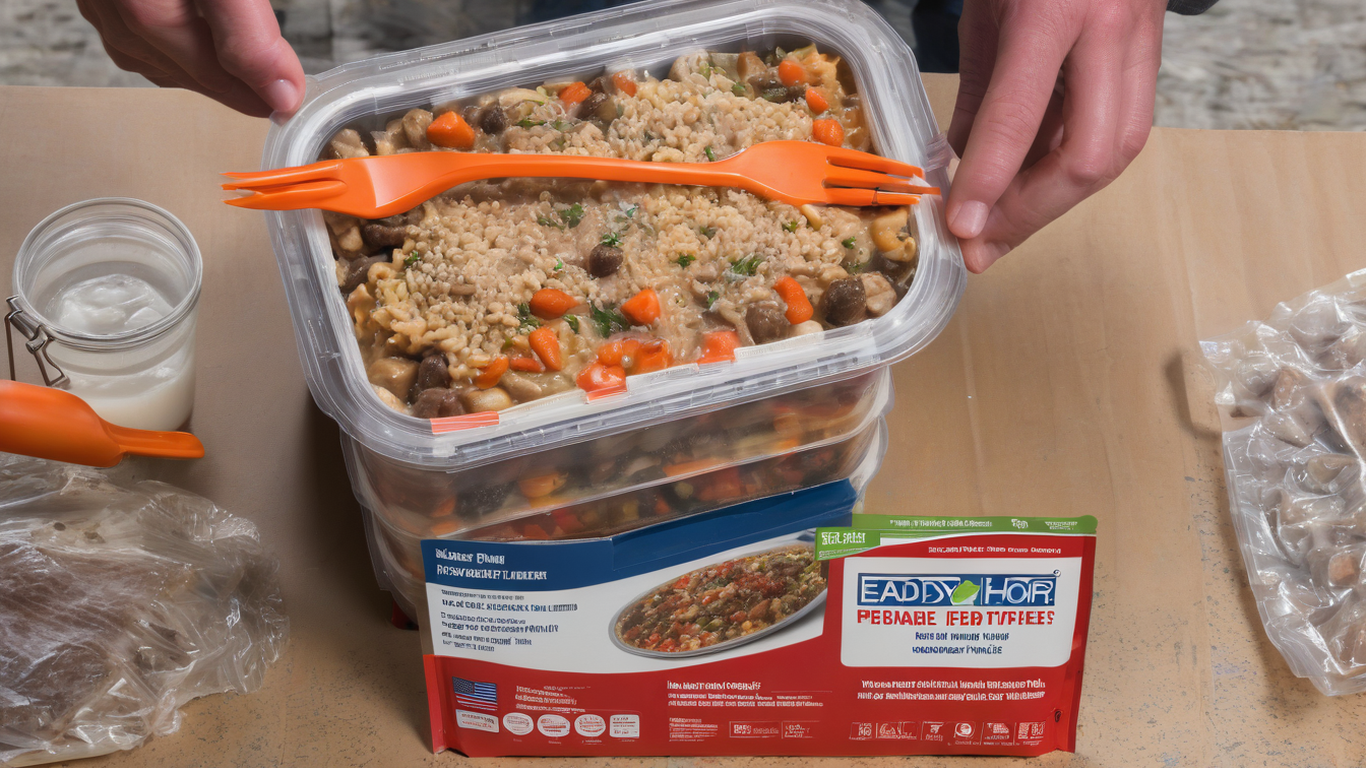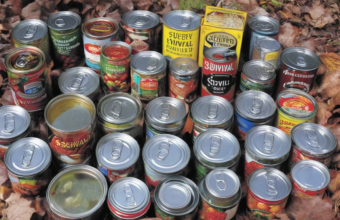Prepping on a Fixed Budget – Mastering the Art of Frugal Preparedness
Welcome to the world of frugal preparedness, where every penny is a potential lifeline. Prepping on a fixed budget isn’t just about surviving, it’s about thriving in uncertainty without breaking the bank.
Our journey together will uncover the secrets of affordable prepping, making the most of limited resources, and crafting a survival strategy that doesn’t compromise on safety or quality. We’ll explore how to prioritize, where to find the best deals, and how to make every dollar stretch further.
This is your guide to becoming a budget-savvy prepper, ready to face any challenge with confidence and resilience. So, let’s embark on this journey together, proving that prepping doesn’t have to be an expensive endeavor, but a cost-effective and rewarding lifestyle.
What Is Budget Prepping?
Budget prepping is the practice of preparing for potential emergencies or disasters while adhering to a fixed financial plan. It involves intelligent planning and resource allocation to ensure that you are ready for any unexpected event without breaking the bank.
Key to budget prepping is frugality, which involves making the most out of your available resources. It’s about prioritizing necessities over luxuries, focusing on items that serve multiple purposes, and avoiding unnecessary expenses.
Another crucial aspect is DIY skills. From building your shelter to growing your food, learning how to do things yourself can save you a significant amount of money.
Budget prepping also involves smart shopping. This means buying in bulk, taking advantage of sales, and purchasing items that have a long shelf-life.
Here are a few tips to get started with budget prepping:
– Start small: Don’t overwhelm yourself with the need to prepare for every possible scenario. Begin with the basics like food, water, and shelter.
– Learn and adapt: Use the internet to learn about budget prepping. There are numerous forums, blogs, and videos available that can guide you.
– Swap and share: Join a community of preppers. They can provide useful advice and you may be able to trade items or skills.
Remember, budget prepping is a journey, not a destination. It’s about making small, consistent efforts towards securing your future without putting undue financial stress on your present.
How To Start Prepping On A Budget?
Prepping on a fixed budget doesn’t have to be a daunting task. The key is to prioritize and plan. Start by determining what’s essential for your survival. This typically includes food, water, shelter, and medical supplies. It’s crucial to start small, purchasing a few extra canned goods or a gallon of water each time you shop.
Next, consider investing in quality, durable items that will last. This may seem counter-intuitive when budgeting, but it can save money in the long run. For instance, a high-quality water filter can provide clean drinking water for years, eliminating the need for costly bottled water.
Frugal prepping also involves learning DIY skills. From growing your own food to basic first aid, these skills can be invaluable in a survival situation and won’t cost you anything to learn. Many resources are available online for free.
Finally, remember to be patient and consistent. Prepping is a marathon, not a sprint. It’s about gradually building up your supplies and skills over time, not overnight. So, take it slow, stick to your budget, and remember, every little bit helps.
- Determine essential survival items
- Start small with purchases
- Invest in quality, durable items
- Learn DIY skills
- Be patient and consistent
When it comes to prepping on a budget, it’s all about being resourceful and making the most of what you have. Don’t let a tight budget deter you from preparing for the future. With careful planning and a bit of creativity, you can be well-prepared without breaking the bank.
Can Prepping Be Cheap?
Absolutely! Prepping on a fixed budget is not only possible, but it can also be highly effective. The key to successful budget prepping is prioritizing and planning. Knowing what to buy first and where to invest your money is crucial.
Firstly, focus on the basics: food, water, and shelter. These are the three pillars of survival. Purchasing bulk, non-perishable food items, and a good water filter can go a long way.
Secondly, consider investing in a good quality, multi-purpose tool. This can serve numerous functions and save you from buying individual tools.
Thrift stores and garage sales can be gold mines for prepping supplies. You can often find camping gear, tools, and even canned goods at a fraction of the retail price.
Learning skills, such as gardening, canning, and basic first aid, can also be a cost-effective way to prep. These skills not only save money but can also be lifesaving in a crisis.
Lastly, remember that prepping is a marathon, not a sprint. It’s about gradually building up supplies and skills over time. You don’t need to buy everything at once.
When it comes to prepping, creativity and resourcefulness are as valuable as any piece of gear. So, yes, prepping can indeed be cheap if done wisely.
What Are Cheap Prepping Essentials?
There’s a common misconception that prepping requires a substantial budget. However, with careful planning and strategic shopping, you can prepare for unexpected events without breaking the bank. The key is to focus on cheap prepping essentials that are versatile, durable, and cost-effective.
Food and water are at the top of the list. Opt for non-perishable items like canned goods, rice, beans, and pasta. These are inexpensive, have long shelf lives, and can be used in a variety of meals. Water purification tablets or a life straw are affordable options for ensuring access to clean water.
Basic medical supplies are another must-have. Bandages, antiseptics, and over-the-counter medications can be purchased at low costs. Remember, it’s not about having a hospital-grade first aid kit, but rather essential items that can handle common injuries and illnesses.
Lighting and heating are also important. Candles, matches, and blankets are all budget-friendly options. A hand-crank flashlight is a one-time investment that can provide light without the need for batteries.
To stay informed, a battery or hand-crank radio is a valuable, yet inexpensive tool. For shelter, consider a simple tarp or emergency blanket. These items are lightweight, compact, and can provide protection from the elements.
Lastly, don’t forget about basic tools. A multi-tool or Swiss Army knife can be a lifesaver in various situations and can be found at reasonable prices.
Remember, prepping on a fixed budget is about prioritizing essentials and making smart purchases. It’s not about having the most expensive gear, but being prepared and resourceful with what you have.
How To Save Money While Prepping?
When it comes to prepping on a fixed budget, the key is to prioritize your needs. Start by identifying the essentials: food, water, and shelter. Invest in long-lasting, non-perishable food items such as canned goods, rice, and beans. These items not only have a long shelf life but are also cost-effective.
Consider purchasing a water filter instead of stocking up on bottled water. Not only is this a more sustainable option, but it is also a more economical choice in the long run.
When it comes to shelter, consider investing in a high-quality, multi-purpose tent. While it may seem like a significant expense upfront, it can serve as a reliable shelter in various situations, making it a worthwhile investment.
Another cost-effective strategy is to buy in bulk. Buying items in large quantities can often result in significant savings. However, be mindful of the storage space and the shelf life of the items.
Furthermore, learning skills like fishing, hunting, or foraging can provide a source of food without additional costs. These skills can be self-taught through books or online resources, saving you the cost of expensive courses or training programs.
Additionally, consider second-hand or discount stores for items like clothing or equipment. Often, these stores have quality items at a fraction of the original cost.
Finally, remember that prepping is a gradual process. You don’t need to buy everything at once. By spreading out your purchases, you can take advantage of sales and discounts, further saving money.
By implementing these strategies, you can effectively prep without breaking the bank. Remember, the goal of prepping is to ensure survival, not luxury. With careful planning and smart shopping, you can achieve this goal even on a tight budget.
Where To Buy Affordable Prepping Supplies?
Prepping on a fixed budget doesn’t mean you have to compromise on the quality of your supplies. You just need to know where to look. Thrift stores are a great place to start. They often have a variety of items like clothing, kitchenware, and tools at a fraction of the retail price.
Online platforms such as eBay and Craigslist are also worth exploring. Here, you can find second-hand items in good condition, ranging from camping gear to survival books.
Another excellent source for affordable prepping supplies is garage sales. Many people sell items they no longer need, and you can often negotiate the price.
But don’t overlook the power of DIY. Many prepping essentials, like water filters and first aid kits, can be made at home for less. There are countless online tutorials to guide you through the process.
Lastly, consider buying in bulk. Stores like Costco offer discounts on bulk purchases, which can significantly reduce your overall cost.
Remember, prepping on a fixed budget is about being resourceful and strategic. It’s not about how much you spend, but how wisely you spend it.
How Much Should I Spend On Prepping?
Prepping on a fixed budget can seem daunting, but it’s entirely possible with careful planning. The key is to prioritize your needs and invest in high-quality, cost-effective items. Start by identifying essential items for your survival kit. These typically include food, water, shelter, and medical supplies.
When it comes to food and water, opt for long-lasting, non-perishable items. Buying in bulk can often result in significant savings. Consider purchasing a water filtration system instead of bottled water – it’s a more sustainable and cost-effective solution in the long run.
Shelter and clothing should be practical and durable. Investing in a good quality tent and thermal clothing can save money over time as these items will not need to be replaced frequently.
Medical supplies are another crucial aspect of prepping. A well-stocked first aid kit is a must. Consider taking a basic first aid course to maximize the use of your supplies.
Remember, prepping is not a one-time expense, it’s a lifestyle change. It’s about gradually building up your supplies and skills over time. Here are a few tips to stretch your budget:
- Buy items on sale or in bulk.
- Learn DIY skills to make or repair items.
- Focus on multi-use items.
Ultimately, the amount you spend on prepping will depend on your personal circumstances and priorities. But remember, the goal is not to break the bank but to feel more secure and prepared for any situation that may arise.
Is DIY Prepping Cost-Effective?
When it comes to prepping on a fixed budget, many individuals turn to DIY methods as an affordable alternative. The question arises, however, whether this approach is truly cost-effective.
DIY prepping allows for flexibility and customization, enabling you to tailor your prep plan to your specific needs. This can result in significant savings, as you’re not paying for unnecessary items that may be included in pre-packaged kits. For instance, you can focus on gathering only essential survival items like water filters, canned foods, and first-aid supplies, which are often cheaper when bought individually.
Moreover, DIY prepping encourages learning valuable skills such as gardening, canning, and basic carpentry. Not only do these skills enhance your self-reliance, they also save money in the long run. For example, growing your own vegetables is cheaper than buying them from the store, and canning allows you to preserve food for longer periods, reducing wastage.
However, it’s important to note that DIY prepping requires time and effort. For those with limited free time, the convenience of ready-made kits could outweigh their higher cost.
Ultimately, the cost-effectiveness of DIY prepping depends on your personal circumstances. Consider your budget, time availability, and willingness to learn new skills to determine whether DIY prepping is the right choice for you.
Conclusion: Mastering the Art of Prepping on a Fixed Budget
In conclusion, budget prepping is a feasible and practical approach to preparedness. This post has highlighted the importance of understanding what budget prepping entails and how to initiate the process. We’ve learned that prepping doesn’t have to be expensive, and there are numerous cheap essentials that can be utilized effectively.
Strategies for saving money while prepping have been discussed, emphasizing the value of smart shopping and the acquisition of affordable prepping supplies. It’s crucial to budget wisely for prepping, ensuring that your resources are well allocated and utilized.
The post also explored the cost-effectiveness of DIY prepping, a trend that is gaining popularity for its affordability and the personalized touch it adds to prepping. Looking ahead, we anticipate an increase in the availability of budget-friendly prepping supplies, driven by a growing market demand for affordable preparedness solutions.
Remember, the key to successful prepping on a fixed budget is planning, prioritization, and smart shopping. With these tips in mind, you’re well on your way to becoming a budget prepping expert. Stay prepared, stay safe.












